Israel Folau never wanted you to see this documentary film
Documentary makers are intent on rescuing this red-hot story of clashing beliefs and moral complexity from the quagmire of cancel culture. It’s full of own goals.
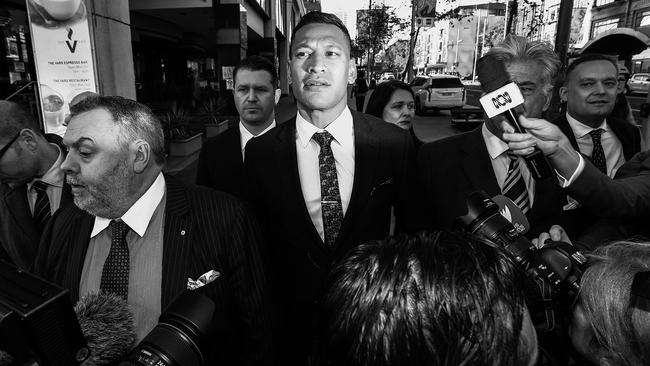
“It took a lot of energy from a lot of people … and no one really got a positive outcome out of anything,” says former Wallabies coach Michael Cheika towards the end of the two-hour documentary on the Israel Folau case.
It’s a telling comment and an interesting choice by filmmakers with which to conclude a project intent on rescuing this red-hot story of clashing beliefs and moral complexity from the quagmire of cancel culture.
Not everyone would agree with Cheika.
Australians offended by the footballer’s social media post that hell awaits “drunks and homosexuals” and others, and certainly the LGBTQI+ community would see the footballer’s exit from the field as a victory. Some Christians would see his (undisclosed) financial settlement as some proof he had the right to express his religious views. Even Rugby Australia might feel the sacking of Folau was a principled plus for its brand.
But Cheika is right to imply loss, most obviously to Folau himself.
That this superb, charismatic athlete had his career cut short by his own social media has elements of true tragedy. As sports writer Georgina Robinson tell us in Folau (screening on ABC TV from Thursday, May 18): “When I look back on Israel Folau’s career in Australian rugby, I am sad. It’s one of the most complex and one of the saddest stories I’ve covered in sport.”
That’s an emotion doubtless shared by the other big losers; the fans who miss out on seeing one of the greatest footballing talents of our times do his thing.
So, lots of own goals. Even if we agree there was no other way for the saga to play, this story offers us big challenges, as its veteran producer Ivan O’Mahoney says, in how to manage difference in our society. Unpacking that spurred him to make the documentary, an In Films production backed by Screen Australia and Screen NSW.
O’Mahoney tells Review: “The Folau story really seemed to show what happens when big corporations, institutions – they all have corporate values, more often than not, these corporate values now include diversity and inclusion – this film shows what happens when these two values clash.” He makes the point that “it’s all good and well, saying we welcome people from all parts of the world” but if many players do not condone homosexuality “what do you do with it?”
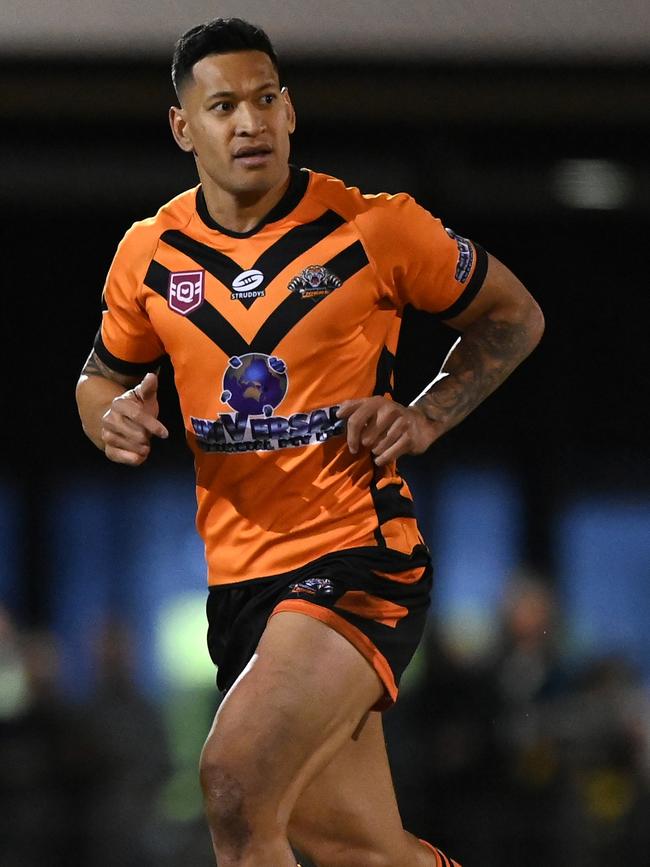
The percentage of Pacific Islanders in the National Rugby League in this country is 45 per cent. The rugby union figure is much lower, but globally at 20 per cent of professional players, is not insignificant. And while clearly not every Pasifika player is against homosexuality, nor every non-Pasifika player an ally, O’Mahoney’s point is well made: what do we do when individual religious freedom clashes with the rights of all of us to be protected from discrimination?
We know what happens in this case: the footballer, a preacher in his father’s evangelical church posts material widely seen as damning homosexuals; Rugby Australia tries to navigate a path between its superstar and the widespread dismay at his stance; he is sacked, then sues; the Australian Christian Lobby gets on board; the case is settled; the nation moves on and the talented Israel Folau is by 2022 playing not for the Wallabies or any other Australian code but for Tonga in the Pacific Nations Cup.
This deeply polarising story and its lingering aftermath is rich material for a documentary. O’Mahoney and director Nel Minchin began development before Covid-19 with high hopes Folau would be part of a project to explain his part in one of the biggest domestic sports stories of recent times. But two years of overtures failed to attract Folau who not only refused to co-operate but, according to the final credits, did not agree with any of words he wrote in previous statements being used or in any way agree to the making of the film, or even the use of his name in the title.
Folau took two years to shoot (in Australia, Fiji, New Zealand and Japan) and edit, and along with the star’s absence struck another problem with delays in clearing footage, which delayed the screening from its scheduled run last November.
Folau’s decision not to be involved forced the filmmakers to find other ways to tell a yarn without fresh interviews with its subject or family and friends – and they’ve done well. The film gives us something we rarely see on our screens – a close look at the Pasifika culture and community in the outer suburbs of our big cities, a group of Australian citizens we largely ignore.
There is scarcely a white face on screen in the first 15 minutes or so of the documentary, as Minchin creates an intelligent look at the community that produced this mega footballer and mega Christian so embedded in a society built on “family, faith and finances”.
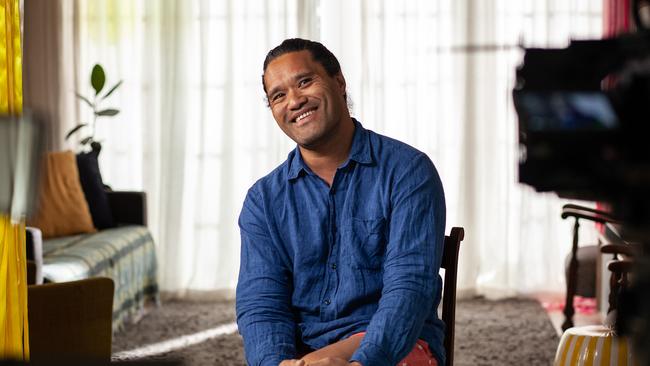
Take a step back and you see why Folau might have found it all but impossible at an emotional, intellectual and spiritual level to do other than stick to his guns when Rugby Australia began asking him to rethink. The filmmakers have sourced excellent talent, including the Mormon bishop Salesi Tupou from the church where Folau worshipped as a child; artist Telly Tuita who grew up, like Folau, in working class Minto in outer Sydney; and former pastor and human rights lawyer Andre Afamasaga, who is of Samoan descent. Both Tuita and Afamasaga reflect on being gay in Pasifika communities. Good context comes too from Sydney University’s first Pasifika professor, Jioji Ravulo.
Says O’Mahoney of the Pasifika material: “It was one of the main reasons for wanting to make this. When this happened, it felt as if all the usual people with megaphones were there, opinion writers, all the usual suspects. The people we were hearing the least were those most affected by the whole situation and these were people in the Pasifika community, whether they were straight or gay.”
The film deftly shows the huge connection to family but also the “religion” of rugby, a way out of migrant marginalisation. As Tonga coach and former Wallaby Toutai Kefu says: “Look at our body types … we’re big, we’re explosive. It’s something that we do really well. ”
We see how well Folau does it: At 17 he is so good, he is signed to the Melbourne Storm rugby league team and makes an immediate impact with a leap more akin to that of an AFL player. Storm’s former talent scout Peter O’Sullivan says the youngster had an amazing temperament, indeed the somewhat shy Folau was a “flat line” of calmness.
Soon he switches to the Brisbane Broncos at $400,000 a season where he faces some of the normal off-field challenges of young sporting celebrities. Next it’s an extraordinary bolt to the AFL, despite never having played one game of that code. It’s 2010 and Sydney is abuzz with Kevin Sheedy and the development of the Greater Western Sydney Giants. Folau scores a $6m contract over four years, but it’s tears before bedtime as he fails dismally to transition and exits after a couple of years. Snapped up by the Super Rugby Waratahs, he’s spectacular and goes on to play 73 internationals with the Wallabies.
This story, along with the footballer’s trajectory through the Mormon church, to the evangelical Hillsong and finally to his father’s own church, The Truth of Jesus Christ Church, is well told and provides a good backdrop to the troubles that begin as the marriage equality debate plays out in 2017.
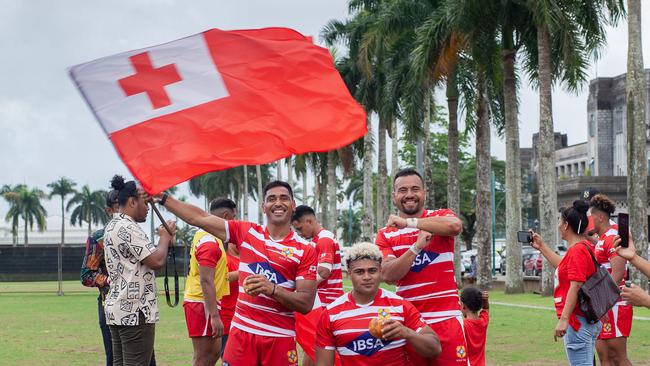
We are left, however, wanting more of Folau and his family.
In response, O’Mahoney says: “It was a real shame that Israel decided not to take part in the show because … we actually wanted him to be a part of the production from the very beginning. The problem that you then face as a filmmaker, of course, you want to be fair to him, in fact, you need him to tell his side of the story … because he’s not co-operating you run the risk of people saying, ‘well, that’s not very balanced’.
“So you’re fighting on two fronts ... but despite the fact that Israel wasn’t willing to engage, we wanted to find a way to make sure that his voice was still represented accurately and fairly, as possible, which is why we use those excerpts from (the website) Athletes Voice because it was one of the few times where he himself had reflected on what had happened.”
Those excerpts, voiced by an actor, are compelling enough but the biography fills just the first hour of the documentary, with the second half devoted to the cultural and legal battle sparked by Folau’s tweets.
This is more familiar to most of us, but there are some nice surprises and effective commentary from people like Wallabies superstar Samu Kerevi, and former Wallaby Dan Palmer who came out at age 25.
There’s vision too of Folau, sporting spiky, silvered hair, on the cover of a gay magazine promoting the Gay Rugby World Cup, the Bingham Cup, back in the days before the same sex marriage plebiscite.
It all helps build a more nuanced look at the drama. O’Mahoney says the challenge was to make a film “where we would at least see if we could find some common ground”.
He points to the inclusion in the film of the Pasifika commentators: “What was really fascinating to me, is that some of the most sympathetic voices to Israel, were actually coming from LGBTQI Pasifika people.”
But just as Cheika finds it hard to find positives for the game, lawyer Josh Bornstein is hard pressed to see closure, arguing in the film that the “fundamental philosophical stuff” is still up in the air.
“We have rights under anti-discrimination laws that protect your religious affiliation. We also have rights that protect against discrimination on the basis of sexuality, gender, race and so on,” he says.
“But we don’t have a clear answer to the question what happens when there is a contest between religious expression which is bigoted and the rights of the gay community, in this case, to live free of vilification.”
Folau, the two-part documentary premieres Thursday May 18 at 8pm on ABC TV and ABC iview.


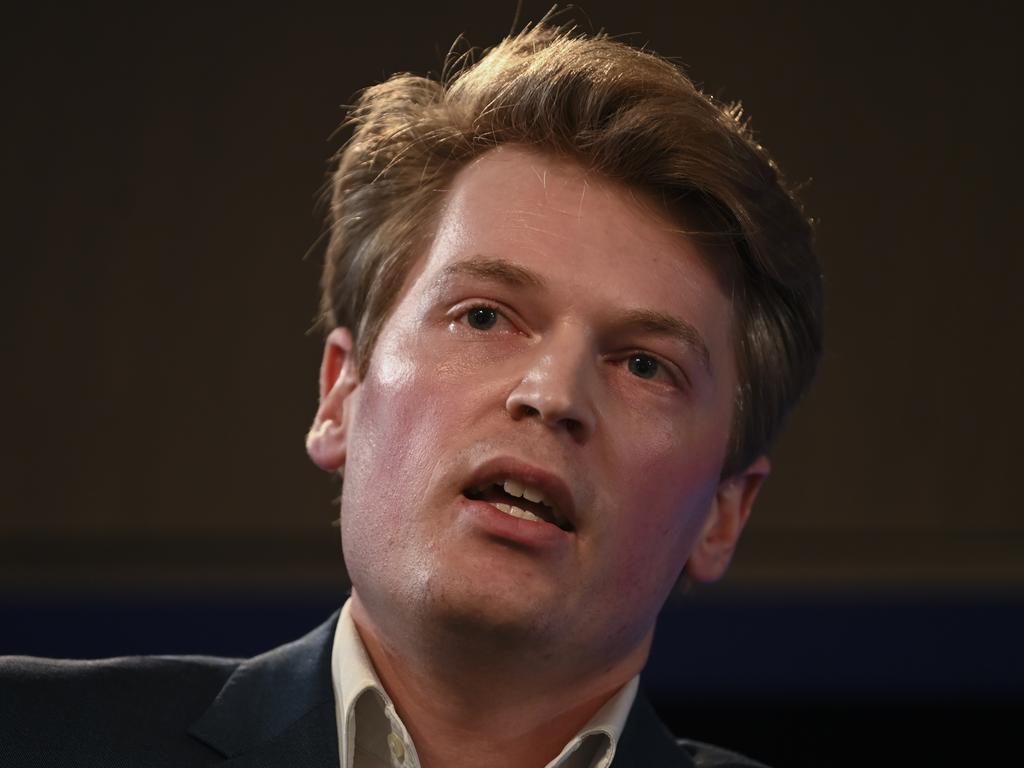

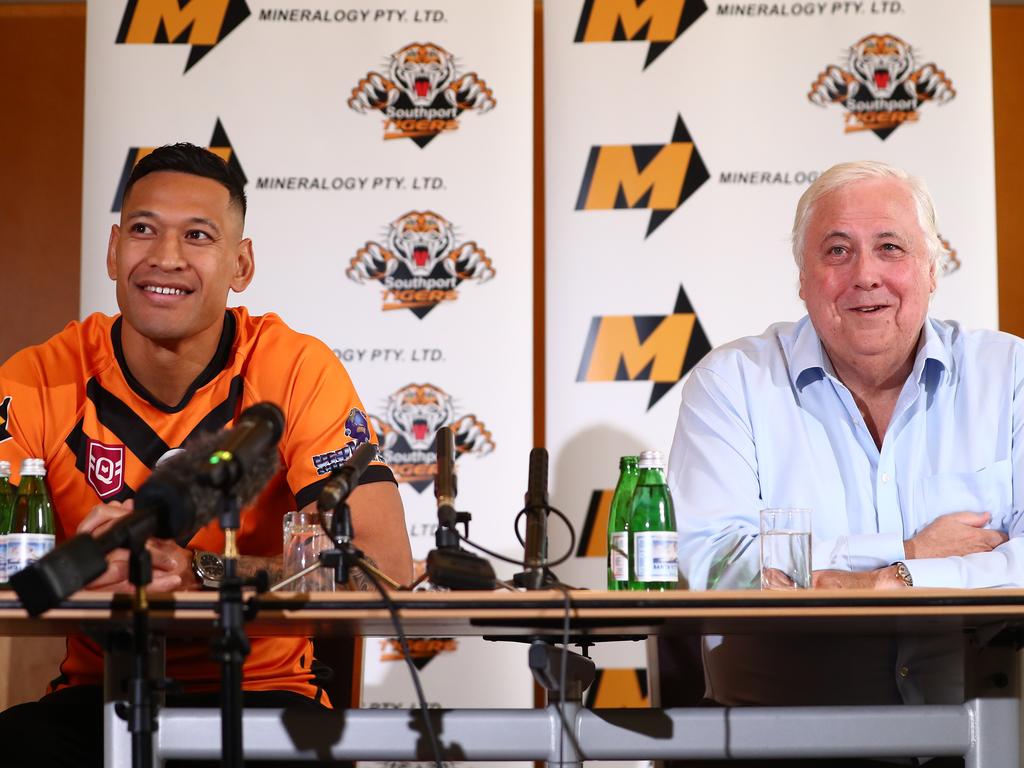

To join the conversation, please log in. Don't have an account? Register
Join the conversation, you are commenting as Logout